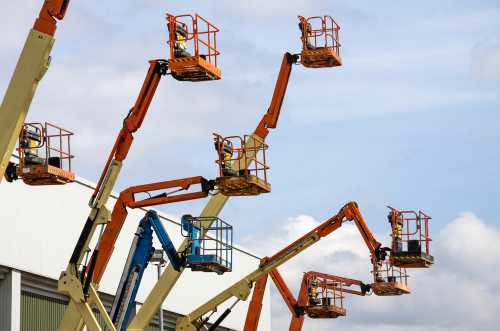The importance of competence in an evolving industry

Ensuring a competent and adaptable workforce in an ever-changing industry has never been so crucial. Huw Bement, Director of Certification body CompEx, discusses the pivotal role competency plays in delivering good quality work safely, as well as why creating a pipeline of flexible, multi-skilled trade professionals is more important than ever.
Quality and competence
In response to the Grenfell Tower disaster and Hackitt Review, the Competence Steering Group’s report ‘Setting the Bar’ addressed the shortcomings that had been identified.
There should be an entry standard that everyone understands, for any occupation
A series of working groups were set up to develop sector specific responses. For example, Working Group 2 (WG2) focussed on installers, and was supported by representatives from the built environment and fire safety sectors. The key recommendations from WG2 were:
- Accredited third party certification of companies
- Level 2 or 3 qualifications for individuals
- A card scheme such as, but not limited to, the CSCS
- CPD refresher training and the maintenance of individual skills
- Have a core knowledge of fire safety in buildings – training to be standardised and made mandatory
These recommendations resonated with me because they reflected much of what I have found from my discussions with stakeholders within the CompEx user community. Competence is not just about an individual employee at one moment in time, but must also recognise the role of the wider culture and processes within an organisation, and its role in underpinning quality.
As Steve Bratt, chair of CompEx, CEO of engineering services body ECA and a member of the CLC Task Force Group, recently noted: “There should be an entry standard that everyone understands, for any occupation – if there are multiple routes to demonstrating competence, history tells us the cheapest and quickest route will prevail and our attempts to be an industry that can deliver quality will fail.”
Responding to a changing workplace
 Nearly every industrial sector around the world has been experiencing fast and sometimes disruptive change, not least of course as a result of the ongoing pandemic.
Nearly every industrial sector around the world has been experiencing fast and sometimes disruptive change, not least of course as a result of the ongoing pandemic.
Technology, innovation, the transition to a lower carbon future, and increasing automation are all playing a role in re-shaping the workplace. In turn, every business will need an increasingly flexible, multi-skilled and technology-enabled workforce to adapt to and succeed in the workplace of the future.
The 2019 Skills Landscape report, part of the OPITO UKCS Workforce Dynamics series, forecasted that by 2025, the industry will not only face an aging workforce but there will be approximately 4,500 new people employed in roles that don’t currently exist. Therefore, different skills and competences will be needed to fill these future roles.
New innovative learning methods
To ensure industry has access to the right skills, employers, training providers, certification schemes and awarding bodies must continue to collaborate to develop the curriculum and training methods, so they can adapt to the changing nature of work.
The amalgamation of new technology (e.g. machine learning, artificial intelligence, expert systems) and new training practices (virtual and augmented reality, simulation and situational analysis training) has the potential to transform how people are going to learn and upskill.
The UKCS survey highlights that there will be an increasing demand for simulation, virtual reality and situational awareness training, potentially offsetting the need for more traditional face-to-face learning methods.
CompEx was established over 25 years ago and has seen first-hand how an industry has evolved. As technology and new ways of working transform industries and businesses there is a requirement us to consider how we best assess and manage competence.
It’s not just about knowing the subject that makes you competent, it’s about your ability to apply and interpret it in different contexts. As a business, we are committed to help equip those within the sector with the right skills and capabilities to meet the requirements of the ever-changing industry and to ensure a continued pipeline of qualified and competent workers.
For more information about CompEx, visit www.compex.org.uk.
.jpg?width=970&height=90&ext=.jpg)



























